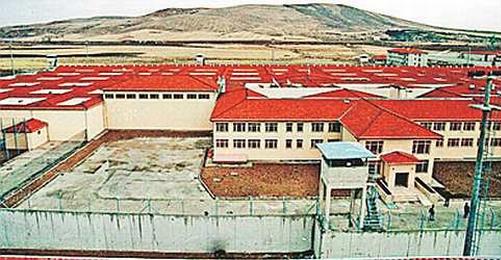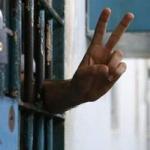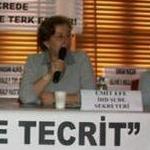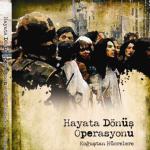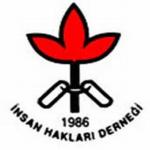63 detainees and convicts from the Sincan No.1 F Type Prison in Ankara were punished for celebrating Labour Day with chanting slogans and marches just like their colleagues outside the prison did on 1 May. 57 inmates are "banned from communication" for one month, six convicts and detainees are not allowed to receive visitors for the same period of time.
The prison administration took records of the 63 political detainees and convicts from blocks A, B and C of the prison and launched an investigation after the inmates' chanting on Labour Day. As a result, the Disciplinary Board of the Ankara No.1 F Type High Security Prison Directorate decided for the punishment of the 63 detainees and convicts.
The board based its decision about 57 of the detainees and convicts on Article 42 of the "Law on the Execution of Sentences and Security Measures". Accordingly, the inmates will be barred from "sending and receiving letters, faxes and telegrams, watching television, listening to the radio, telephoning and other tools of communication for the duration of one month".
Six convicts who were handed down a punishment of "suspension of communication" before were now deprived from receiving visitors for one month. An appeal against the decision was filed with the Execution Judgeship.
Problematic law open to misuse
Lawyer Evrim Deniz Karatana told bianet that these punishments would be added to the over-all sentences of the convicts in case the sanctions were finalized.
"The law is problematic because the term "pointless slogan" is confusing and open to arbitrary application. The law does not define a "situation such a march is required in" on the other hand. Moreover, a person can decide individually which slogans he or she wants to chant on 1 May", Karatana explained.
"The prison management know this right and extensively exercise it for themselves. This sort of arbitrary application is very common. Detainees and convicts are subjected to this punishment frequently. This is contrary to human rights", the lawyer criticized.
"The decision to hand out non-prohibited books and magazines ordered by the inmates is also based on the arbitrariness of the prison management. We witnessed that several publications were not given to the convicts because 'they [allegedly] constituted a threat to prison security'".
"This is the result of isolation applications. This applications aim at oppressing the detainees and convicts, at making daily life more difficult and at 'improving' the inmates' opinions".
"Books may encourage death fast"
In February this year, the book "The Return to Life Operation, from the Ward to the Cell" ('Hayata Dönüş Operasyonu, Koğuştan Hücrelere') written by lawyer Güçlü Sevimli was not allowed inside the Sincan No. 1 F Type Prison.
The book deals with the highly controversial "Return to Life Operation" and the transition period at Turkish F type prisons. It was banned in both prisons by reason of "conveying a bad image of prisons with [smaller] cells". The book was not accepted into the prison because is allegedly "showed a 'negative' image of F type prisons and encouraged the convicts to death fasts and to pursue the same kind of actions".
Karatana reported that the appeal against the ban of the book was being evaluated. The lawyer announced to apply to the European Court of Human Rights in case the appeal would be dismissed. (AS/VK)





